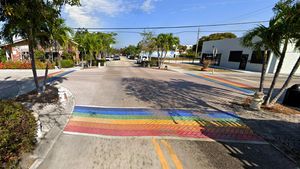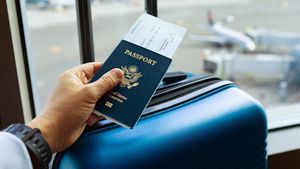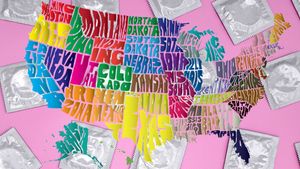Photos: Dwayne's House
To many, Jamaica is a paradise. A tropical getaway where one can go to escape the stresses of everyday life. But for the country's LGBT population, it can turn from comfortable island oasis to a brutal daily struggle for existence.
With harsh anti-gay "buggery" laws, mass homophobic rallies, and an intensely homophobic atmosphere, LGBT people, especially youth, are often pushed to the outskirts of society. When children come out to their parents, it is not uncommon for them to be exiled from their homes, even at as young as age 12. With the loss of a support system and a society unwilling to take them in, they are forced to create makeshift homes in dirty and dangerous conditions. To keep themselves afloat, some are able to receive help from a handful of family members who remain sympathetic to them, but others must turn to alternate methods. Forced into prostitution (often without the use of condoms) and petty theft, they are seen as a criminal element by local business owners, are targeted by the police, and are at high risk for HIV and other STIs.
Investigating one such community living in a gulley in Kingston, Fusion sought to humanize their plight and help promote an organization in Kingston seeking to help these children.
Meeting with Yvonne McCalla Sobers, chair of Dwayne's House, a group that seeks to provide food and clothing to homeless LGBT youth in Kingston, Fusion's Mitchell Williams asks how she began providing aid to the area's queer youth.
"Any kind of injustice bothers me--bothers me deeply," Sobers explains. "Gay rights are human rights... I met with the youth, had heard so many terrible things about them, found them to be human beings like everyone else - but human beings in great need."
Following this with a tour of the gulley from Cristoph, who was disowned in 2009 for being gay, Mitchell witnesses these youth living without proper beds, showers, or even toilets. Despite this, the teens are resourceful enough to work out rules, a way to wash themselves with clean water from a broken pipe, and to divide the drain into various living, washing, and passage areas. Still, they are vulnerable to poor weather, pests, and dangerous cohabitants. Being shunned from society, they share the gulley with other "undesirables." Cristoph states that drug addicts will attack them while they sleep or shower and that they fear for their lives on a daily basis.
When speaking to government officials and business owners, the Fusion correspondents are told that Jamaica is not a homophobic nation and that the youth are not victims because they are gay, but because they are aggressors, engaging in petty theft and prostitution. "I don't think they are discriminated against by the police," says Julian Robinson, whose parliament district includes the gulley. Some claim that gulley residents are only there because they do not want to "straighten up" and leave.
But Sobers responds by saying that those living in the gulley only commit such acts because they have no other options, and Cristoph adds that not all gulley residents are involved in such activities. Regarding the idea that he and his friends wish to stay in the gulley, he responds: "That's ridiculous...Men can enter freely to hurt and kill us. We don't have a proper shower or proper beds. Some of us haven't slept in a bed for five years. Why would we want to stay?"
Dwayne's House is currently seeking donations so that it can expand its services to become Kingston's first shelter for LGBT youth. Those interested in helping can do so at their website.











































































